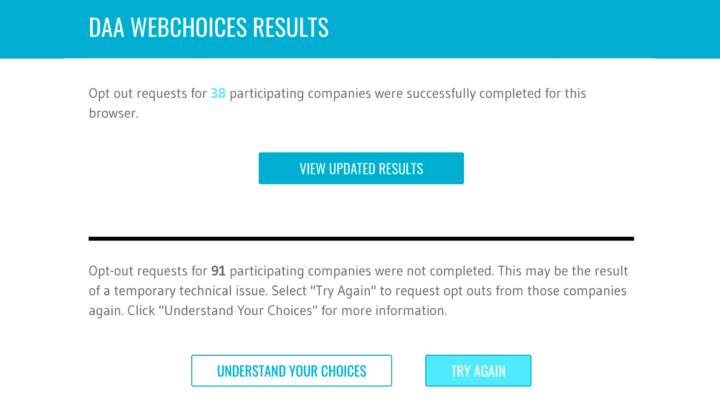Let’s just say it leaves a lot to be desired
Last year, while reporting a story about how the digital advertising industry burrowed its tracking technology into scores of websites serving vulnerable and marginalized communities, I did something counterintuitive, especially for a reporter who writes about tech for a living: I surrendered to the surveillance economy.
This decision to inject pure, uncut internet directly into my veins came as I was using and helping to create The Markup’s Blacklight tool, which opened my eyes even further to the plethora of companies that sought to grab my data from the websites I used on a daily basis. Until then, I had mostly used Google’s Chrome browser with the Privacy Badger extension, which blocks many forms of tracking, or Mozilla’s Firefox, which has strict privacy controls set by default.
Doing the opposite—ensuring that as many ad tech companies as possible got my data and then making sure that I saw all the personalized ads targeted at me as a result—seemed like a way to get a visceral feel for the modern internet that most people are subjected to. So I started using mostly Chrome, the least privacy-protective of all the major web browsers, and turned off third-party browser extensions that blocked tracking requests and digital ads (which also frequently insert their own user tracking on browsers).
I cannot in good conscience recommend this tactic to any normal person, not only because it’s good to be thoughtful rather than chaotic in your digital hygiene but also because having tons of ads load on every site you visit makes mindlessly clicking around the internet even slower and more of a chore than it was in my previous, privacy-protected life.
Now, six or so months later, seemed like a perfect time to run another experiment: Could I get the ad tech companies to stop using all this beautiful data they’ve been collecting on me?
Enter: AdChoices.
Most of the time when you see a banner ad on the internet, there’s a little triangle in the corner that you’ve probably never actively thought about until this very moment. AdChoices is a program by the Digital Advertising Alliance (DAA), a consortium of digital advertising groups. Among other things, it provides what it calls a one-stop portal where people can ask more than 100 ad tech companies to opt them out of being targeted with personalized ads based on their personal data.
You may never have known this option exists, even though it’s been around for a decade.
DAA executive director Lou Mastria said in an email that the company collaborates with BBB National Programs and the Association of National Advertisers to ensure that the ad tech companies that agree to the opt-outs actually follow through. “Their work has resulted in more than 120 enforcement cases to date, including referrals to the appropriate regulatory agencies, as needed,” he explained.
AdChoices’ offer was tempting. Just a few clicks on a single website and, like magic, I would stop all the ads I encountered from knowing everything about me? If only it had turned out to be so easy.
When I opened up a Firefox browser and went to the YourAdChoices.com opt-out page, I was greeted by a buzz of activity. The site started by automatically running some tests on my browser to check compatibility and then presented a list of participating ad tech companies. I hit the button to opt out of all of them, and we were off to the races. At the end, I got a report: 38 companies had processed my opt-out. The other 91? It said there may be a “temporary technical issue” with those.
What?

Most people would have closed the tab and given up. Honestly, I considered it. Instead, I did some research and learned that DAA’s opt-out works basically the same way that online advertisements do. It installs a cookie (a small text file that connects your device with a profile of your activity) on your web browser.
In other words…



